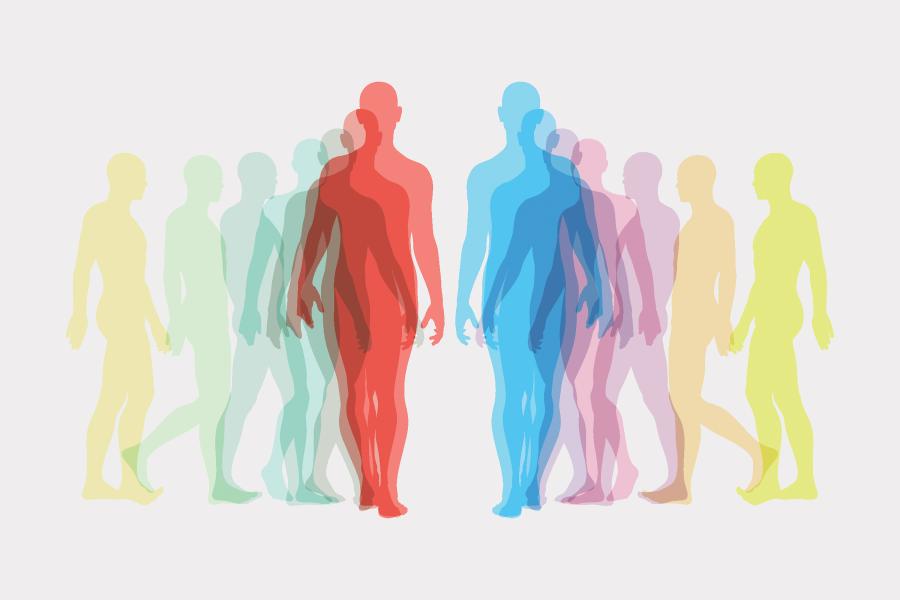Nearly 42% of American adults were obese from 2017 to 2020, up from roughly 30% in 2000, according to the Centers for Disease Control and Prevention. With that rise in obesity comes an increased risk for heart disease, stroke, type 2 diabetes, and some cancers.
Patients and their doctors are increasingly turning to in-demand drugs like Ozempic and Wegovy, but are they safe and effective? A recent episode of the Public Health on Call podcast explores the pros and cons with two Johns Hopkins University experts: gastroenterologist Sameer Khan of the Johns Hopkins School of Medicine and podcast host Joshua Sharfstein, vice dean for public health practice and communication engagement at the Bloomberg School of Public Health. Khan says the drugs work, but they are hard to find, expensive—around $700 a month without insurance for Wegovy which is prescribed for weight loss—and need to be taken forever to maintain weight loss and improve cardiovascular health when researchers don't yet fully understand their long-term effects. Read on for three key takeaways from their conversation.
Good for diabetes, weight loss—and more
Ozempic and Wegovy, aka semaglutide, and Mounjaro, aka tirzepatide, are FDA-approved injectable medications developed to treat adult-onset diabetes; Wegovy and Mounjaro can be prescribed for weight loss alone. As blood sugar levels start rising, these medications help the pancreas make more of the hormone insulin. Insulin then helps blood sugar move into the body's cells to be used for energy. The medications, also known as GLP-1 drugs, also reduce glucagon, a hormone secreted by the liver that causes glucose levels to rise in the bloodstream.
Also see
Khan says he has seen patients' insulin requirements drop by half by taking these relatively new meds. That they also help with weight loss is something of a happy accident: "We've sort of figured this out by mistake," Khan says. "In fact, the big studies coming out are telling us that [after taking one of these medications] for about a year to a year-and-a-half, people are achieving about 15% to 20% weight loss." Additionally, patients are seeing improved liver function and lower rates of stroke as well as kidney and heart disease. A study coming out in the next month or so is expected to show a 20% reduction in heart attacks, strokes, and death from a cardiovascular cause. "It suggests to me that we're going to see this used for a lot more than just diabetes and obesity," Khan says.
Doctors aren't exactly sure how the drugs work
"We know these medicines play on a receptor in the brain—the hypothalamus—and we know that regulates our appetite, but scientists haven't figured out the precise mechanism for the way these medicines do that," Khan says. "There is some concern from health experts related to that." Khan notes that he and his colleagues are seeing signs during endoscopies that Ozempic and Wegovy may slow the passage of food through the digestive system. "It is a concern for us," Khan says. "So much so, that there is now a hospitalwide policy that patients must hold their GLP-1 medication for one week prior to their endoscopy. The presence of food can cause us to have to abort a procedure. It also increases the risk for a patient to have complications of sedation such as aspiration. Final guidance will likely emerge in the upcoming year on whether holding the medicine becomes a national practice."
Side effects—proceed with caution
Half or more of patients experience nausea, which usually fades in time as patients stick with treatment. Other gastrointestinal side effects include vomiting and diarrhea. Rare but serious side effects include pancreatitis, which Khan describes as inflammation of the pancreas that can result in nausea, vomiting, and the inability to tolerate oral liquids and solid food. "Usually, it's self-limited, but in rare cases, it can get serious," Khan says. "In the early studies of GLP-1 agonists (like Ozempic), there were studies suggesting that pancreatitis was a common complication of these medicines. As more investigation is being done, the risk of pancreatitis appears to be somewhat exaggerated. Nonetheless, data has been conflicting. I still believe there is an increased risk, it's just not as high as we thought from the early investigations done with these medications."
Khan also avoids writing prescriptions when people have a family history of medullary thyroid cancer because for many years, there has been a described association between GLP-1 medications and thyroid cancer, he says. "The risk increases the longer you are on the medicine. The overall risk has been described to be around 50% higher than someone not on the medicine. To be clear, thyroid cancer is rare. So, in patients without any personal or family history of thyroid cancer, we will prescribe the medicine. But in those with a high-risk family or personal history, we are typically much more guarded."
Another concern? Everything we know about these medicines suggests you can't stop them without gaining back the weight and losing any gained control over diabetes, Khan says. Before he'll write a prescription for a weight-loss drug, Khan talks with patients to find out how seriously they've taken their previous weight-loss attempts, and he discusses the financial burden and potential side effects—including the possibility of needing to stay on the drug for life. "This is not a decision I make in a single visit," he says. "I give [them] some time to think about it."
Posted in Health
Tagged cardiovascular health, heart disease, diabetes, weight loss, stroke








